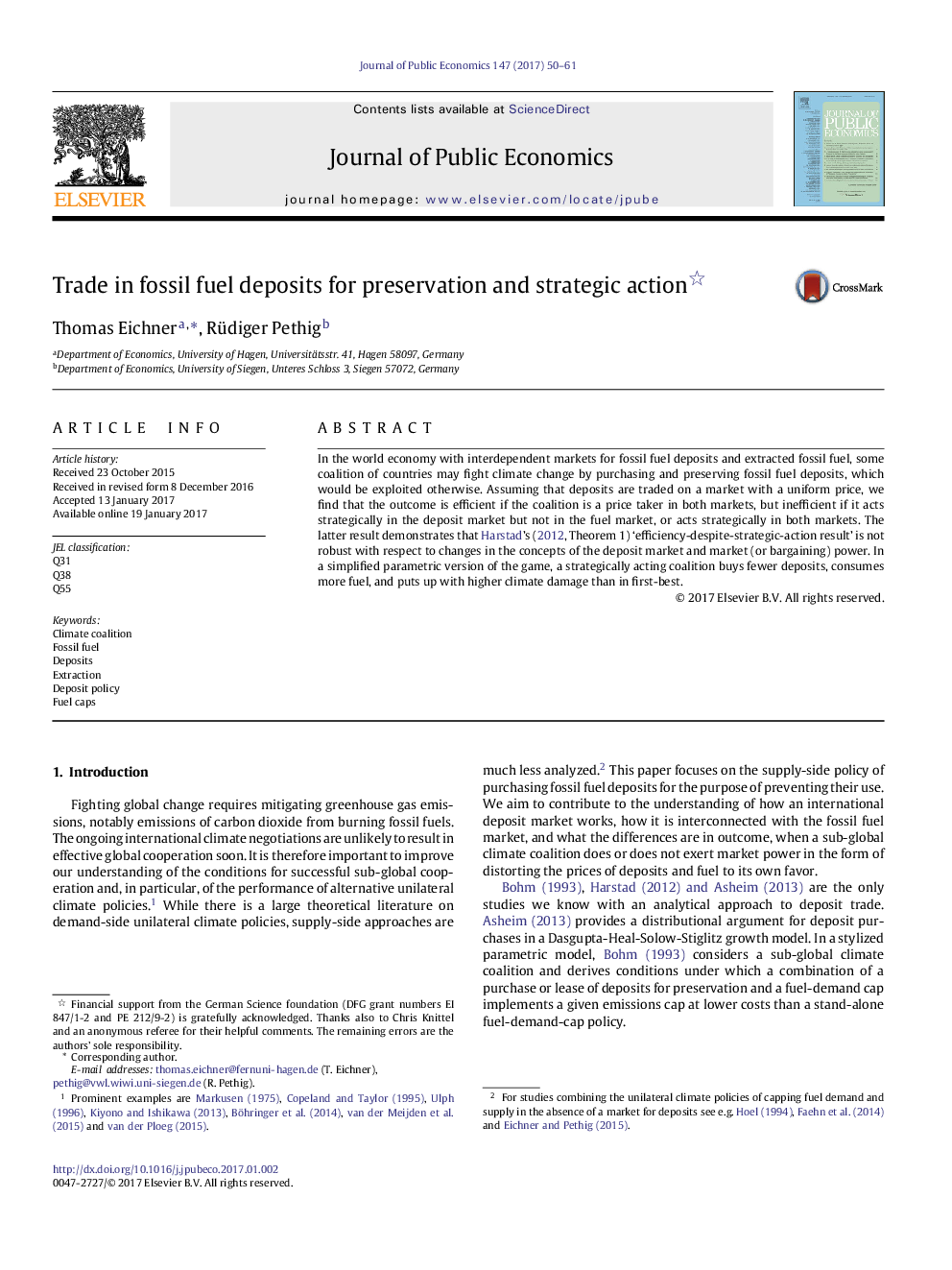| Article ID | Journal | Published Year | Pages | File Type |
|---|---|---|---|---|
| 5101857 | Journal of Public Economics | 2017 | 12 Pages |
Abstract
In the world economy with interdependent markets for fossil fuel deposits and extracted fossil fuel, some coalition of countries may fight climate change by purchasing and preserving fossil fuel deposits, which would be exploited otherwise. Assuming that deposits are traded on a market with a uniform price, we find that the outcome is efficient if the coalition is a price taker in both markets, but inefficient if it acts strategically in the deposit market but not in the fuel market, or acts strategically in both markets. The latter result demonstrates that Harstad's (2012, Theorem 1) 'efficiency-despite-strategic-action result' is not robust with respect to changes in the concepts of the deposit market and market (or bargaining) power. In a simplified parametric version of the game, a strategically acting coalition buys fewer deposits, consumes more fuel, and puts up with higher climate damage than in first-best.
Related Topics
Social Sciences and Humanities
Economics, Econometrics and Finance
Economics and Econometrics
Authors
Thomas Eichner, Rüdiger Pethig,
